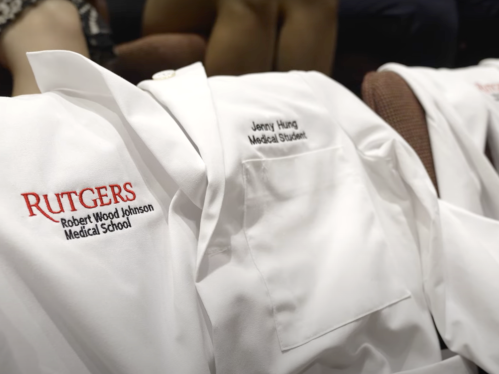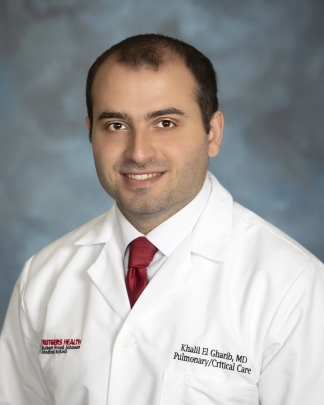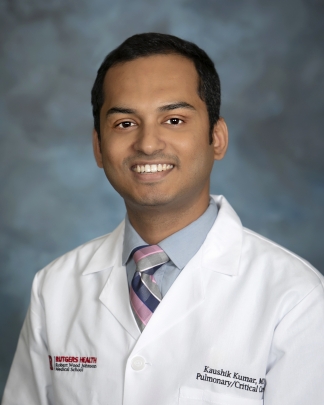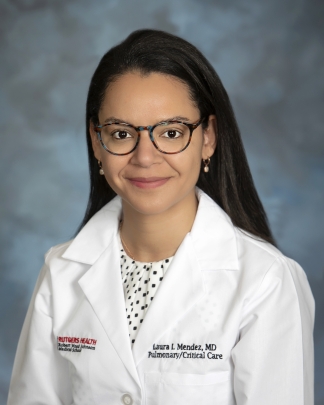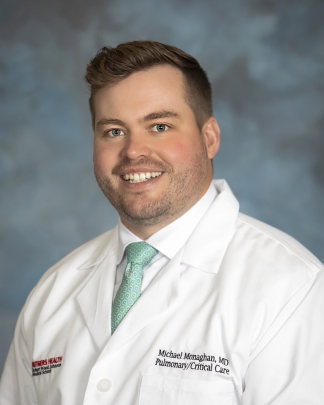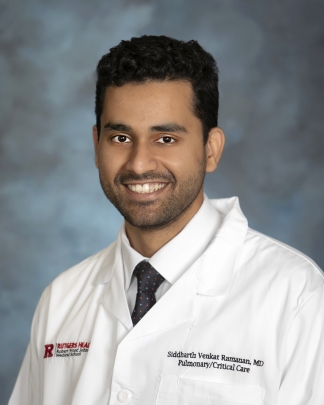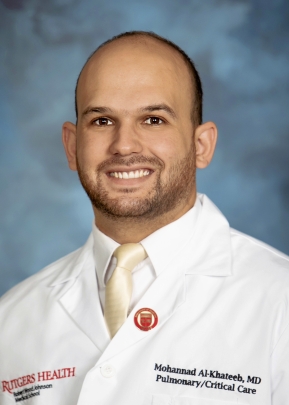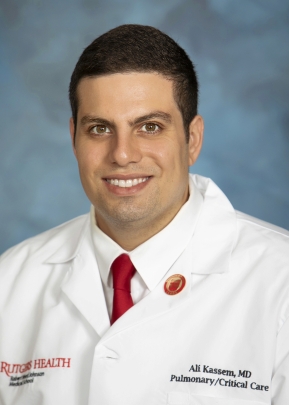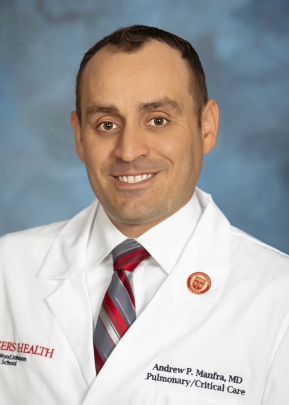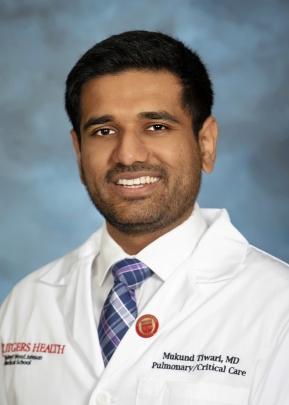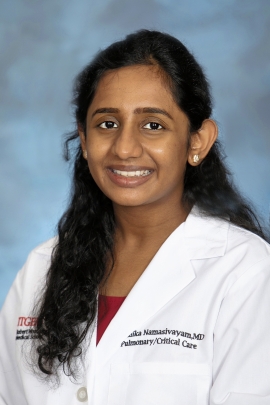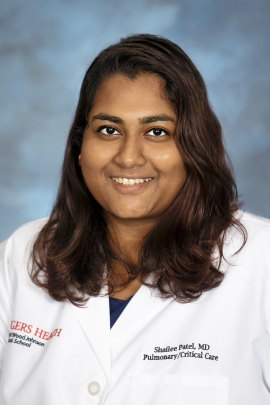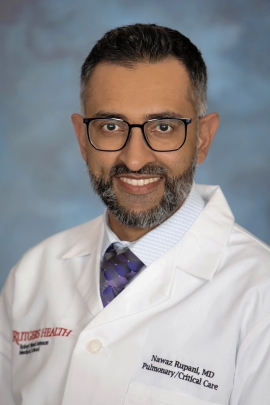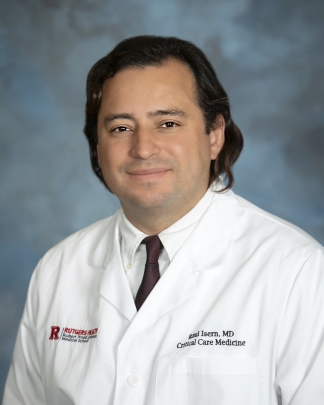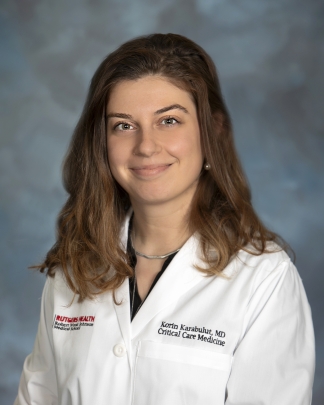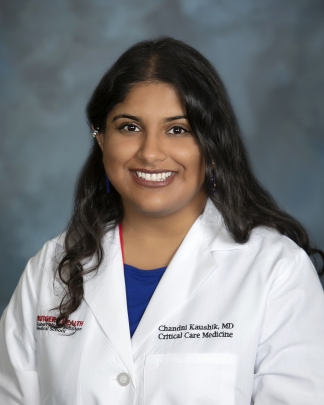Pulmonary and CCM Fellowship
GOALS/MISSION
Welcome to Rutgers Robert Wood Johnson Medical School’s Pulmonary and Critical Care Fellowship program! Our goal is to train the next generation of outstanding pulmonary and critical care physicians with a well-rounded approach that emphasizes in-depth knowledge of physiology, clinical excellence, and research experience. We are deeply committed to developing future clinical educators, equipping fellows with the skills to teach, mentor, and lead in academic and clinical settings.
Whether you aspire to be a clinician, researcher, or educator, our program provides the foundation to help you excel in your career.
Educational Curriculum
-
Goals of the Program:
- To train fellows for independent clinical practice in the specialty of pulmonary medicine.
- To train fellows for independent clinical practice in the specialty of critical care medicine.
- To prepare fellows for the practice of sleep disorders medicine as practiced by pulmonologists in a multi-disciplinary environment and to prepare them for further formal training in sleep disorders medicine if desired.
- To expose fellows to research endeavors in basic science and translational medicine.
- To prepare fellows for a lifetime of continuing education, leadership, teamwork and professional development by imparting to the fellows the skills, attitudes and ethical principles necessary to keep up with scientific, clinical, administrative and ethical developments in the fields of pulmonary, critical care and sleep medicine.
Progressive Responsibilities
Clinical:
The Rutgers Robert Wood Johnson Medical School (RWJMS) Pulmonary and Critical Care Fellowship is an ACGME-accredited program that provides fellows with exposure to a diverse range of cases across multiple clinical sites. The primary teaching hospital is Robert Wood Johnson University Hospital (RWJUH), where fellows rotate through the Medical Intensive Care Unit, Neurocritical Care Unit, and provide inpatient general pulmonary and interventional pulmonary consultations.
Fellows also rotate at Deborah Heart and Lung Center, managing the Surgical Intensive Care Unit under the supervision of an anesthesia critical care physician. During this rotation, they care for post-operative cardiac surgery patients, including those who have undergone CABG, valve replacements, LVAD, Impella, and ECMO, as well as thoracic surgery patients.
Outpatient clinical rotations occur every fifth week (4+1 schedule) at the Clinical Academic Building, where fellows manage cases involving common pulmonary conditions such as chronic cough, COPD, asthma, pulmonary nodules, and interstitial lung diseases. They are also exposed to subspecialty clinics in areas such as cystic fibrosis, non-CF bronchiectasis, obstructive lung diseases, and sleep disorders. A rotation through the Comprehensive Sleep Disorders Clinic further enhances their understanding of sleep medicine.
The fellowship program encourages participation in global health initiatives and research. Fellows can join the Global Health Steering Committee and have opportunities to travel abroad, such as to Romania and the Dominican Republic, to work on research addressing vulnerable populations in New Brunswick and beyond.
By their nature, core responsibilities during clinical rotations do not change from month to month. However, attending faculty generally grant more autonomy and responsibility to fellows as they progress through their fellowship.
- During the first year, fellows concentrate on consultation, differential diagnosis, interpretation of diagnostic tests and development treatment plans.
- In the second and third years, more emphasis is placed on implementation of plans in a complex environment and on higher level communication skills.
There are a few areas where there are progressive clinical responsibilities granted only to fellows according to year.
Interpretations of exercise studies generally are done by a second-year fellow while on research time.
- Interventional bronchoscopy procedures, such as laser and placement of endobronchial stents, generally are “weighted” toward senior fellows.
Academic:
The pulmonary and critical care fellowship program at Rutgers RWJ Medical School provides a comprehensive academic and clinical experience for its fellows.
In addition to bedside teaching during in-patient and outpatient rotations, fellows participate in weekly conferences—4 to 5 per week—that cover a broad range of topics, including:
- Pulmonary physiology and pathophysiology
- Critical care-focused discussions
- Case conferences
- Journal club
- Pulmonary pathology and chest radiology reviews
- Critical care ultrasound techniques
Fellows also benefit from access to a state-of-the-art bronchoscopy simulator, an invaluable tool for improving procedural skills such as airway anatomy review, endobronchial ultrasound (EBUS), and interactive case scenarios.
Academically, the program emphasizes progressive learning tailored to each year of training:
- Research: Fellows have dedicated research time in their second year. A research project is identified during the first year, and fellows are required to present a seminar and research proposal before starting their research rotation. Throughout their research time, fellows are expected to provide updates and, by their third year, produce either an abstract for a national conference or a published paper.
- Physiology Course: Guided by faculty mentors, fellows present a physiology course with topics assigned based on their year of training and complexity. For instance, first-year fellows tackle foundational topics like pulmonary gas exchange, while third-year fellows explore integrative topics such as heart-lung hemodynamic interactions. Additionally, second- and third-year fellows each deliver a seminar on a physiology topic of their choice.
This structured blend of academic rigor and hands-on learning equips fellows with the knowledge and skills necessary for excellence in pulmonary and critical care medicine.
The following duties are apportioned according to year of training:
- Research: Fellows have protected research time in their second year. Prior to the start of those rotations, usually during the first year, a research project is identified. All fellows present a seminar and research proposal prior to beginning their research rotation, ideally toward the end of their first year A research update is expected during their research time, and either an abstract at a national conference or a published paper is expected at some point during their third year.
- Physiology Course: The physiology course is presented by the fellows with faculty mentors for each topic. Topics are assigned to first-, second- and third-year fellows, according to complexity. For example, basic topics, such as pulmonary gas exchange, are generally assigned to first-year fellows. More complex, integrative topics, such as heart-lung hemodynamic interactions, are presented by a third-year fellow. In addition, second- and third-year fellows each present a seminar on a physiology topic of their choosing.
Administrative:
- Third-year fellows are given responsibilities for the administration of the fellowship. These include generating the fellows’ call schedule and a schedule for presentations at the weekly case conference.
Pulmonary Diseases
Fellows at Robert Wood Johnson University Hospital (RWJUH) will assume primary responsibility for consultations referred to the division, as well as provide direct care to patients admitted to the pulmonary service, including those in the respiratory care unit at RWJUH. Fellows play a pivotal role in the teaching of medicine housestaff (RWJMS) assigned to the consult service. Daily responsibilities include rounding with the supervising attending, reading pulmonary function studies and supervising (from time to time) cardiopulmonary exercise studies. Fellows perform bronchoscopies under direct supervision of the attending physician. Fellows will share responsibility for organizing the weekly clinical conference at RWJUH and participate in case presentations. They will attend all relevant conferences at the institution to which they are assigned, as well as weekly journal clubs/research conferences at RWJUH. Attendance at the weekly physiology conference is also mandatory. Each fellow will have a longitudinal clinic at RWJUH that will meet one half-day per week.
Sleep Disorders
Site: Comprehensive Sleep Disorders Center at Rutgers Robert Wood Johnson Medical School
Duration of Rotation: One Month
The fellow assigned to the VAHCS rotation will participate in the outpatient activities of the Comprehensive Sleep Disorders Center on Wednesday mornings. This sleep clinic is multidisciplinary, incorporating sleep-boarded pulmonology, sleep-boarded neurology, an ear, nose and throat specialist, and a dentist. In addition, certain clinics will also incorporate a pediatric pulmonologist specializing in sleep medicine and a psychiatry rotating resident. In addition, fellows receive didactics by the sleep faculty.
Medical Critical Care
Site: Robert Wood Johnson University Hospital
Duration of Rotation: One MonthOne month the fellow will function as an intensivist and will have the responsibility of supervising the housestaff under the direction of the attending physician. The fellow will be involved in the management of all aspects of patient care. She/he will interact with the nursing and other personnel in ensuring the efficient functioning of the unit for the purpose of optimal patient care. Daytime fellows will triage patients into the ICU and sign out to their colleagues on night rotations. The night time fellows will supervise the housestaff at night and continue patient care.
Ambulatory Care
Sites: Clinical Academic Building at Rutgers Robert Wood Johnson Medical School; the VA New Jersey Health Care System (VANJHCS) at Lyons and East Orange, NJ; Jersey Shore University Medical Center (JSUMC), Neptune, NJ; and Deborah Heart & Lung Center, Browns Mills, NJ.
Fellows attend weekly the weekly outpatient clinic in the Clinical Academic Building except when on vacation or rotation at Deborah Heart & Lung Center or JSUMC. Weekly clinics are conducted under the direct supervision of faculty members. Additional outpatient experiences are also provided at the VANJHCS under the supervision of the site director and in the sleep clinics at the Clinical Academic Building.
Non-Medical Critical Care/Trauma
Sites:Deborah Heart & Lung Center and Robert Wood Johnson University Hospital
These rotations focus on intensive management in the hours immediately following surgery, management of common postoperative problems, and management of resources within the intensive care unit. The fellow functions as primary caregiver in the surgical intensive care unit, to which patients are admitted directly from the operating room. The fellow interacts closely with intensivists, anesthesiologists, surgeons and other members of the SICU team in a multidisciplinary environment. Patients are followed until they leave the unit and fellows are encouraged to obtain follow-up on their patients that leave the unit.
-
Goals of the Program:
- To train fellows for independent clinical practice in the specialty of pulmonary medicine.
- To train fellows for independent clinical practice in the specialty of critical care medicine.
- To prepare fellows for the practice of sleep disorders medicine as practiced by pulmonologists in a multi-disciplinary environment and to prepare them for further formal training in sleep disorders medicine if desired.
- To expose fellows to research endeavors in basic science and translational medicine.
- To prepare fellows for a lifetime of continuing education, leadership, teamwork and professional development by imparting to the fellows the skills, attitudes and ethical principles necessary to keep up with scientific, clinical, administrative and ethical developments in the fields of pulmonary, critical care and sleep medicine.
Progressive Responsibilities
Clinical:
By their nature, core responsibilities during clinical rotations do not change from month to month. However, attending faculty generally grant more autonomy and responsibility to fellows as they progress through their fellowship.
- During the first year, fellows concentrate on consultation, differential diagnosis, interpretation of diagnostic tests and development treatment plans.
- In the second and third years, more emphasis is placed on implementation of plans in a complex environment and on higher level communication skills.
There are a few areas where there are progressive clinical responsibilities granted only to fellows according to year.
Interpretations of exercise studies generally are done by a second-year fellow while on research time.
- Interventional bronchoscopy procedures, such as laser and placement of endobronchial stents, generally are “weighted” toward senior fellows.
Academic:
The following duties are apportioned according to year of training:
- Research: Fellows have protected research time in their second year. Prior to the start of those rotations, usually during the first year, a research project is identified. All fellows present a seminar and research proposal prior to beginning their research rotation, ideally toward the end of their first year A research update is expected during their research time, and either an abstract at a national conference or a published paper is expected at some point during their third year.
- Physiology Course: The physiology course is presented by the fellows with faculty mentors for each topic. Topics are assigned to first-, second- and third-year fellows, according to complexity. For example, basic topics, such as pulmonary gas exchange, are generally assigned to first-year fellows. More complex, integrative topics, such as heart-lung hemodynamic interactions, are presented by a third-year fellow. In addition, second- and third-year fellows each present a seminar on a physiology topic of their choosing.
Administrative:
- Third-year fellows are given responsibilities for the administration of the fellowship. These include generating the fellows’ call schedule and a schedule for presentations at the weekly case conference.
Pulmonary Diseases
Fellows at Robert Wood Johnson University Hospital (RWJUH) will assume primary responsibility for consultations referred to the division, as well as provide direct care to patients admitted to the pulmonary service, including those in the respiratory care unit at RWJUH. Fellows play a pivotal role in the teaching of medicine housestaff (RWJMS) assigned to the consult service. Daily responsibilities include rounding with the supervising attending, reading pulmonary function studies and supervising (from time to time) cardiopulmonary exercise studies. Fellows perform bronchoscopies under direct supervision of the attending physician. Fellows will share responsibility for organizing the weekly clinical conference at RWJUH and participate in case presentations. They will attend all relevant conferences at the institution to which they are assigned, as well as weekly journal clubs/research conferences at RWJUH. Attendance at the weekly physiology conference is also mandatory. Each fellow will have a longitudinal clinic at RWJUH that will meet one half-day per week.
Sleep Disorders
Site: Comprehensive Sleep Disorders Center at Rutgers Robert Wood Johnson Medical School
Duration of Rotation: One Month
The fellow assigned to the VAHCS rotation will participate in the outpatient activities of the Comprehensive Sleep Disorders Center on Wednesday mornings. This sleep clinic is multidisciplinary, incorporating sleep-boarded pulmonology, sleep-boarded neurology, an ear, nose and throat specialist, and a dentist. In addition, certain clinics will also incorporate a pediatric pulmonologist specializing in sleep medicine and a psychiatry rotating resident. In addition, fellows receive didactics by the sleep faculty.
Medical Critical Care
Site: Robert Wood Johnson University Hospital
Duration of Rotation: One MonthOne month the fellow will function as an intensivist and will have the responsibility of supervising the housestaff under the direction of the attending physician. The fellow will be involved in the management of all aspects of patient care. She/he will interact with the nursing and other personnel in ensuring the efficient functioning of the unit for the purpose of optimal patient care. Daytime fellows will triage patients into the ICU and sign out to their colleagues on night rotations. The night time fellows will supervise the housestaff at night and continue patient care.
Ambulatory Care
Sites: Clinical Academic Building at Rutgers Robert Wood Johnson Medical School; the VA New Jersey Health Care System (VANJHCS) at Lyons and East Orange, NJ; Jersey Shore University Medical Center (JSUMC), Neptune, NJ; and Deborah Heart & Lung Center, Browns Mills, NJ.
Fellows attend weekly the weekly outpatient clinic in the Clinical Academic Building except when on vacation or rotation at Deborah Heart & Lung Center or JSUMC. Weekly clinics are conducted under the direct supervision of faculty members. Additional outpatient experiences are also provided at the VANJHCS under the supervision of the site director and in the sleep clinics at the Clinical Academic Building.
Non-Medical Critical Care/Trauma
Sites:Deborah Heart & Lung Center and Robert Wood Johnson University Hospital
These rotations focus on intensive management in the hours immediately following surgery, management of common postoperative problems, and management of resources within the intensive care unit. The fellow functions as primary caregiver in the surgical intensive care unit, to which patients are admitted directly from the operating room. The fellow interacts closely with intensivists, anesthesiologists, surgeons and other members of the SICU team in a multidisciplinary environment. Patients are followed until they leave the unit and fellows are encouraged to obtain follow-up on their patients that leave the unit.
-
Conferences are held on a regular basis and all fellows participate actively in the planning and preparation of these conferences.
Pulmonary Physiology and Pathophysiology Conference – Weekly conference with in depth discussion from faculty and fellows that cover topics of pulmonary physiology, sleep medicine and disease pathophysiology.
Critical Care Conference– Weekly Conference that covers different topics in Critical Care medicine (e.g. shock , sepsis , delirium , neurocritical care , surgical emergencies etc..)
Simulation – Sim-Lab training. Simulation sessions related to various topics such as intubation, chest tube placement, providing bad news etc is run by Dr. Jagpal.
Clinical Case Conference – Weekly conference with presentation of 2 interesting cases (either from the pulmonary service or intensive care unit).
Journal Club – presentation and discussion of current interesting and/or controversial articles in pulmonary and critical care medicine
Pathology didactics – Biweekly conference with review of chest pathology in collaboration with our pathology department.
Pathology Conference – Bimonthly joint conference with the pathology department where 4-5 cases are presented with interesting pathological findings and review by the chest pathologist at our hospital.
Interstitial Lung Disease Conference– Bimonthly joint conference with pathology and radiology department to discuss ILD cases / diagnosis.
Cystic Fibrosis and non CF Bronchiectasis Conference– Bimonthly Conference where challenging cystic fibrosis or non CF bronchiectasis cases are presented.
Critical Care Grand Rounds – Monthly joint conference with the surgery critical care and neurocritical care department with discussion of 2 interesting cases
Radiology – conference with a Radiologist to improve the knowledge in chest radiology.
Research/Lab Meetings: Fellows in research rotations will present their current research progress and participate in monthly research discussions.
Multidisciplinary Conferences:
1. Tumor Board (Thursday morning)
2. Art of Medicine Lecture Series
3. Medicine Research Lecture Series
4. Department of Medicine Grand Rounds
5. Morbidity and Mortality Conference
6. Quarterly Interdisciplinary Fellows conference
7. Monthly Critical Care Grand Rounds
-
Research and scholarly activities form a fundamental part of our fellowship program. Fellows are allotted dedicated research time through the 2nd and 3rd year of their training. They have the opportunity to conduct clinical research in collaboration with their mentors or engage in bench research on topics such as lung injury, ARDS, asthma, and sleep disorders within Rutgers University labs.
Fellows are encouraged to actively participate in major conferences by attending, presenting abstracts, and showcasing original research. Opportunities for research are diverse, with a wide range of mentors and focus areas, including Rutgers community resources.
RECENT PUBLICATIONS BY FELLOWS AND FACULTY
[1] Orfanos S, Jude J, Deeney BT, et al. Obesity increases airway smooth muscle responses to contractile agonists. Am J Physiol Lung Cell Mol Physiol. 2018;315(5):L673‐L681. doi:10.1152/ajplung.00459.2017
[2] Radbel J, Jagpal S, Roy J, et al. Detection of Severe Acute Respiratory Syndrome Coronavirus 2 (SARS-CoV-2) Is Comparable in Clinical Samples Preserved in Saline or Viral Transport Medium [published online ahead of print, 2020 May 13]. J Mol Diagn. 2020;S1525-1578(20)30323-8. doi:10.1016/j.jmoldx.2020.04.209
[3] Sunil VR, Radbel J, Hussain S, et al. Sarcoid-Like Granulomatous Disease: Pathologic Case Series in World Trade Center Dust Exposed Rescue and Recovery Workers. Int J Environ Res Public Health. 2019;16(5):815. Published 2019 Mar 6. doi:10.3390/ijerph16050815
[4] Radbel J, Narayanan N, Bhatt PJ. Use of Tocilizumab for COVID-19-Induced Cytokine Release Syndrome: A Cautionary Case Report [published online ahead of print, 2020 Apr 25]. Chest. 2020;S0012-3692(20)30764-9. doi:10.1016/j.chest.2020.04.024
[5] Wu BG, Sulaiman I, Wang J, et al. Severe Obstructive Sleep Apnea Is Associated with Alterations in the Nasal Microbiome and an Increase in Inflammation. Am J Respir Crit Care Med. 2019;199(1):99‐109. doi:10.1164/rccm.201801-0119OC
[6] Ayappa I, Chen Y, Bagchi N, et al. The Association between Health Conditions in World Trade Center Responders and Sleep-Related Quality of Life and Sleep Complaints. Int J Environ Res Public Health. 2019;16(7):1229. Published 2019 Apr 6. doi:10.3390/ijerph16071229
[7] Sunderram J, Weintraub M, Black K, et al. Chronic Rhinosinusitis Is an Independent Risk Factor for OSA in World Trade Center Responders. Chest. 2019;155(2):375‐383. doi:10.1016/j.chest.2018.10.015
[8] Berim IG, Saeed AI, Awab A, Highley A, Colanta A, Chaudry F. Radial Probe Ultrasound-Guided Cryobiopsy. J Bronchology Interv Pulmonol. 2017;24(2):170‐173. doi:10.1097/LBR.0000000000000368
[9] Malhotra RK, Kirsch DB, Kristo DA, et al. Polysomnography for Obstructive Sleep Apnea Should Include Arousal-Based Scoring: An American Academy of Sleep Medicine Position Statement. J Clin Sleep Med. 2018;14(7):1245‐1247. Published 2018 Jul 15. doi:10.5664/jcsm.7234
[10] Yuan X, Xu J, Hussain S, Wang H, Gao N, Zhang L. Trends and Prediction in Daily New Cases and Deaths of COVID-19 in the United States: An Internet Search-Interest Based Model. Explor Res Hypothesis Med. 2020;5(2):1‐6. Published 2020 Apr 18. doi:10.14218/ERHM.2020.00023
[11] Davies JC, Moskowitz SM, Brown C, et al. VX-659-Tezacaftor-Ivacaftor in Patients with Cystic Fibrosis and One or Two Phe508del Alleles. N Engl J Med. 2018;379(17):1599‐1611. doi:10.1056/NEJMoa1807119
[12] Ibironke O, McGuinness LR, Lu SE, et al. Species-level evaluation of the human respiratory microbiome. Gigascience. 2020;9(4):giaa038. doi:10.1093/gigascience/giaa038
-
- Completion and passing of all three USMLE steps
- ABIM board certified or board eligible
- The accepted applicant must obtain a full NJ license (limited license if on visa)
- A valid ECFMG certificate for all foreign medical graduates
- Completion of a prior internal medicine residency is require
-
Khalil El Gharib, MD
Fellowship Year 1
Medical School: Université Saint-Joseph
Residency: Northwell at Staten Island University Hospital ProgramKumar Kaushik, MD
Fellowship Year 1
Medical School: Kakatiya Medical College
Residency: MedStar Health ProgramMendez Morente, Laura, MD
Fellowship Year 1
Medical School: Universidad Iberoamericana
Residency: Mount Sinai Medical Center of Florida ProgramMichael Monaghan, MD
Fellowship Year 1
Medical School: Cooper Medical School of Rowan University
Residency: Rutgers Robert Wood Johnson Medical School
Siddharth Venkat Ramanan MD
Fellowship Year 1
Medical School: Kasturba Medical College Manipal
Residency: University of Connecticut School of MedicineMohannad Al-Khateeb, MD
Fellowship Year 2
Medical School: University of Jordan Faculty of Medicine
Residency: Lincoln Medical and Mental Health CenterAli Kassem, MD
Fellowship Year 2
Medical School: Lebanese University Faculty of Medical Sciences
Residency: Staten Island University HospitalAndrew Manfra, MD
Fellowship Year 2
Medical School: Rutgers Robert Wood Johnson Medical School – New Brunswick
Residency: University of Nevada Las Vegas (UNLV) School of MedicineMukund Tiwari, MD
Fellowship Year 2
Medical School: Rutgers Robert Wood Johnson Medical School – New Brunswick
Residency: Rutgers Health/New Jersey Medical School ProgramKrithika Namasivayam, MD
Fellowship Year 3
Medical School: Drexel University College of Medicine
Residency: Rutgers Robert Wood Johnson Medical SchoolShailee Girish Patel, MD
Fellowship Year 3
Medical School: B.J. Medical College, Ahmedabad
Residency: Rutgers Health/Monmouth Medical Center ProgramNawaz Rupani, MD
Fellowship Year 3 – Chief
Medical School: St. George’s University School of Medicine
Residency: New York-Presbyterian/Queens ProgramKush Patel, MD
Fellowship Year 3 – Chief
Medical School: SUNY Downstate Medical Center College of Medicine
Residency: Rutgers Robert Wood Johnson Medical SchoolCritical Care Medicine Fellows 2024 -2025
Raul Isern, MD
Fellowship Year 1
Medical School: Universidad Rafael Landivar
Residency: HCA Healthcare Las Palmas Del Sol
Fellowship: Creighton University School of Medicine Infectious DiseasesKorin Karabulut Kapici, MD
Fellowship Year 1
Medical School: Bezmialem Vakif University School of Medicine
Residency: Steward Carney Hospital Program
Fellowship: Boston University Medical Center NephrologyChandni Kaushik, MD
Fellowship Year 1
Medical School: McGovern Medical School at The University of Texas Health Science Center at Houston
Residency: University of Texas Health Science Center at Houston
Salaries and Benefits
The Pulmonary and CCM Fellowship offers a uniform package of benefits consistent with those provided at all graduate medical educational programs operated by the medical school. Full details are continuously updated by the Office of Graduate Medical Education.
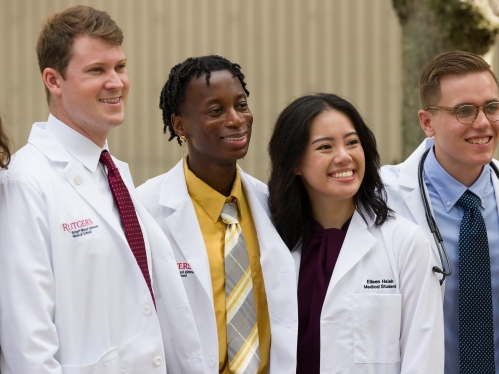
Contact Us
Ms. Alicia Marty
Fellowship Program Coordinator
alicia.marty@rwjms.rutgers.edu.
